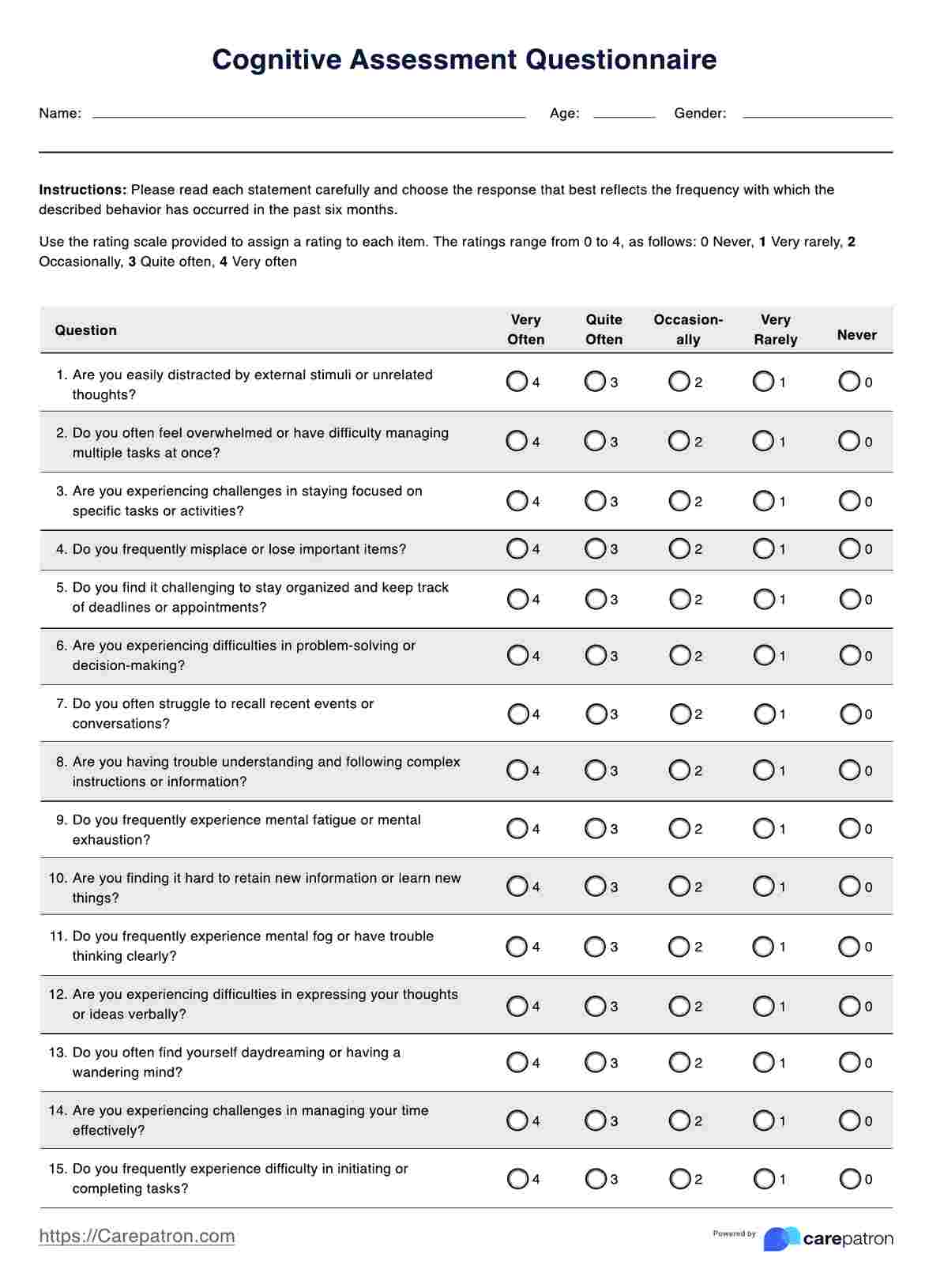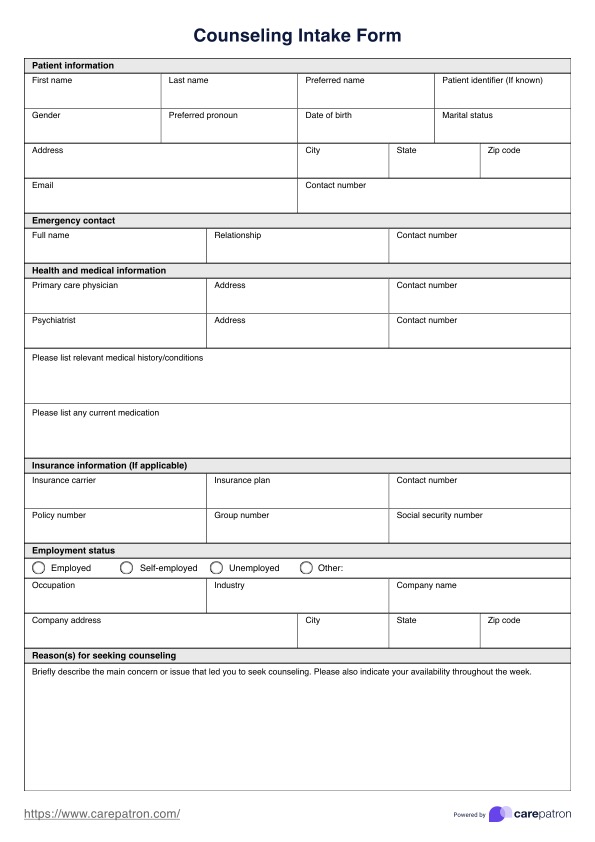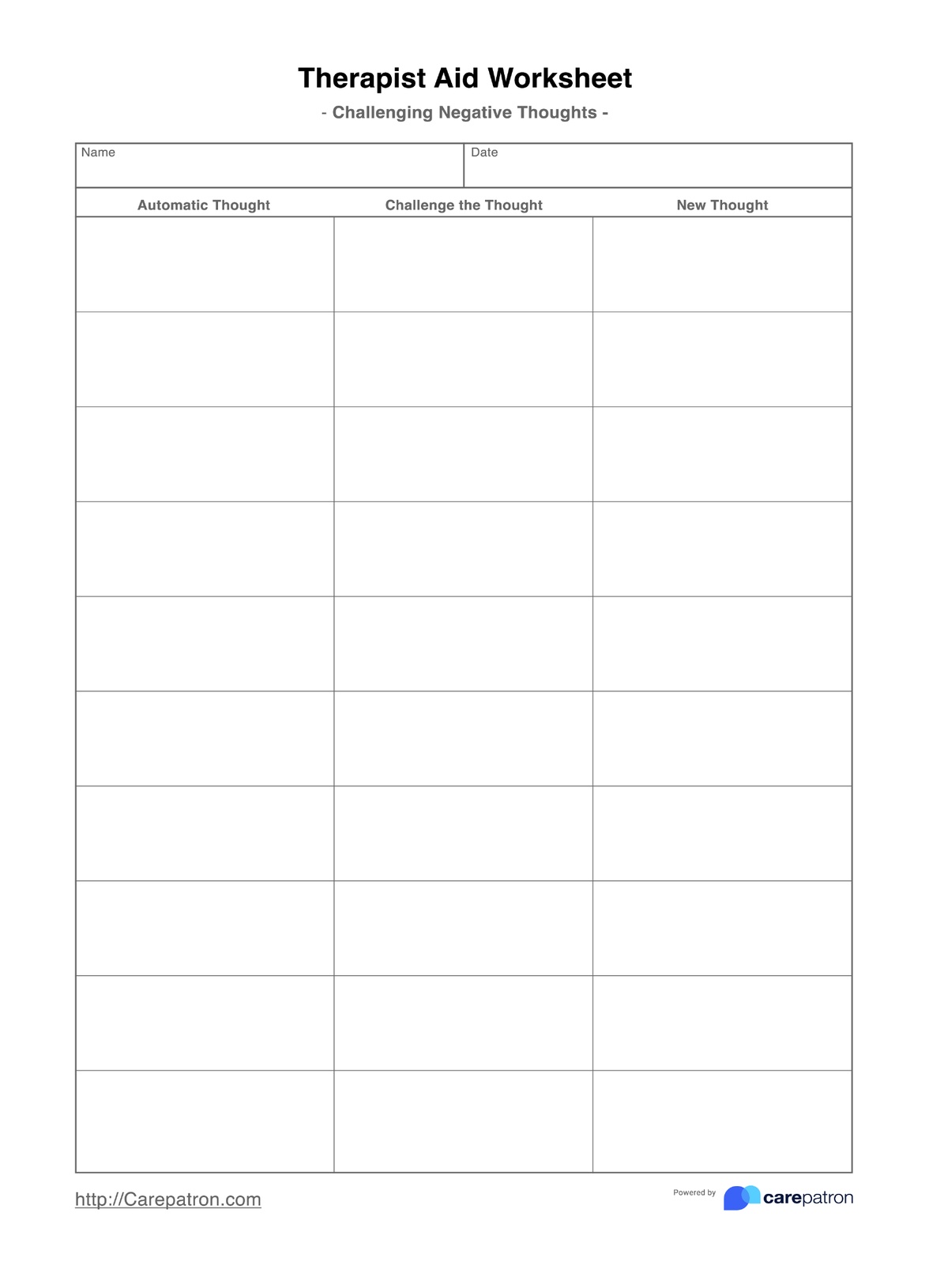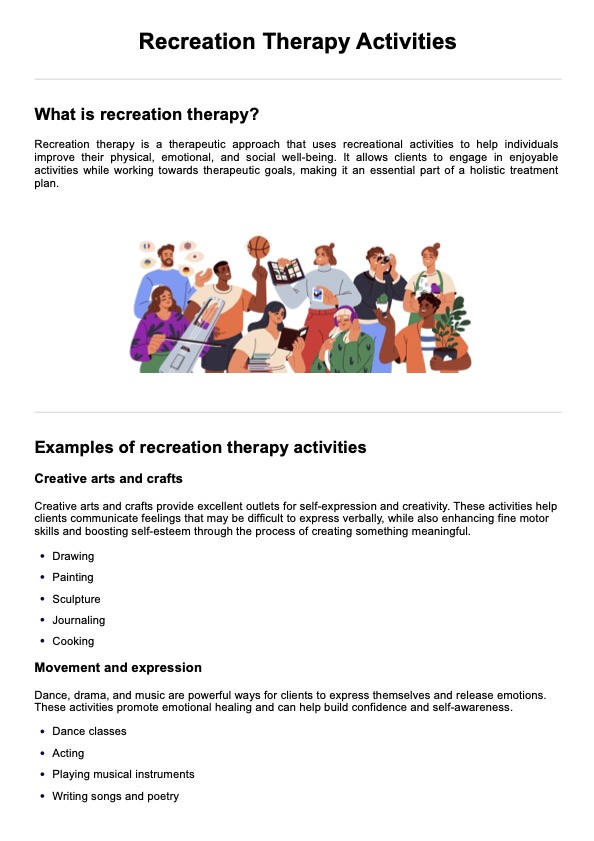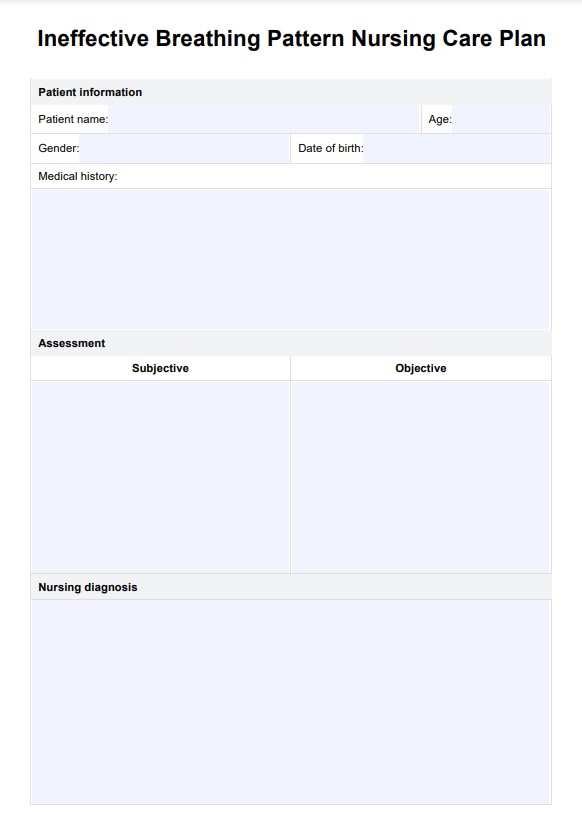Self-care Inventory
Try our Self-care Inventory Template, designed to help healthcare professionals and patients assess and improve self-care habits. Treat yourself to a better you.


What is self-care?
Self-care is about taking care of yourself in a holistic way, focusing on your physical, mental, and emotional well-being. It's like giving yourself a regular tune-up to ensure you're running smoothly. The concept has been around since the mid-20th century when healthcare professionals started emphasizing the importance of personal responsibility for one's health. According to a study published in BMC Public Health, self-care practices are crucial for maintaining overall health and well-being, especially during times of crisis like the COVID-19 pandemic a couple of years back.
Today, self-care can range from basic activities like eating well, exercising, and other health-promoting practices; to indulging in a bougie shopping spree or treating yourself to a spa day or a fancy dinner. Even getting check-ups and avoiding chronic illness are forms of self-care.
It's not just about staying healthy; it's about feeling balanced and happy. When you're proactive about self-care, you're better equipped to handle life's challenges, more productive, and generally more content.
Why is it essential for people to practice self-care?
Self-care is crucial because it helps prevent burnout and reduces stress. It's like hitting the reset button in our fast-paced lives. By taking time for self-care, you boost your overall well-being, making you more resilient and effective in both your personal and professional life.
What things prevent a person from practicing self-care?
Despite its importance, many people struggle to make self-care a priority. Common barriers include busy schedules, feeling guilty about taking "me-time," not knowing where to start, and prioritizing others' needs over one's own. Additionally, there can be societal pressures that suggest self-care is a luxury or unnecessary indulgence, which can discourage people from engaging in self-care activities.
Self-care Inventory Template
Self-care Inventory Example
What is a Self-care Inventory?
A Self-care Inventory, similar to a chronic illness inventory, is a tool used to evaluate how well you're taking care of yourself across different areas of your life. This tool is applicable to the general adult population. It's like a checklist that helps you assess your self-care habits and identify areas where you might need to step up your game. The inventory typically covers various aspects of self-care, including physical, emotional, psychological, spiritual, and professional well-being.
By taking and measuring self-care through a Self-care Inventory, you can get a clearer picture of your current self-care practices and pinpoint areas where you might be neglecting your needs. It's a way to hold yourself accountable and ensure that you're giving yourself the love and attention you deserve. Plus, it can be a great starting point for setting self-care goals and making positive changes in your life.
How does our Self-care Inventory template work?
Our Self-care Inventory template is designed to make it easy for patients to assess and improve their self-care routines. And not only that, even healthcare professionals can use it for their own mental health! Here's how it works:
Step 1: Access the template
The template is available for download through Carepatron. Healthcare professionals can easily access and share it with their patients for use in therapy sessions or as part of a self-care plan.
Step 2: Explain the template
Before patients start filling out the inventory, it's important to explain its purpose and how it's structured. The template covers various self-care categories, such as physical, emotional, psychological, spiritual, and professional well-being.
Step 3: Complete the inventory
Patients rate their self-care practices in each category based on the frequency of their activities, from "never" to "always." This helps them reflect on their current habits and identify areas for improvement.
Step 4: Review and reflect
Once the inventory is completed, healthcare professionals can review it with their patients. This is an opportunity to discuss strengths, areas for improvement, and strategies for enhancing self-care practices.
Step 5: Set self-care goals
Based on the inventory results, patients can set specific, achievable self-care goals. Healthcare professionals can provide guidance and support in developing a realistic plan to meet these goals.
Step 6: Monitor progress
Regular check-ins and self-care monitoring through updates to the Self-care Inventory can help track progress over time. Adjustments can be made to the self-care plan as needed to ensure continued growth and well-being.
By using this template, healthcare professionals can help their patients take a proactive approach to self-care management, leading to improved overall health and well-being.
Benefits of using a Self-care Inventory
Using a Self-care Inventory is a valuable practice for both individuals seeking to enhance their well-being and healthcare professionals aiming to support their patients' self-care efforts. Here's the benefits you can get from it:
- Increased self-awareness: Completing the inventory helps individuals, including those in leadership roles, become more aware of their self-care habits and areas that may need more attention, enhancing their leadership skills and leading to a deeper understanding of their overall well-being.
- Improved well-being: By highlighting areas for improvement, the inventory encourages individuals to take proactive steps toward enhancing their physical health, emotional state, and mental well-being.
- Personalized self-care plan: The inventory provides a personalized snapshot of self-care needs, allowing individuals to tailor their self-care strategies to their unique circumstances.
- Accountability: Regularly completing the inventory helps individuals stay accountable to their self-care goals and track their progress over time.
- Enhanced communication: For healthcare professionals, the inventory can facilitate discussions with patients about self-care, helping to identify potential areas of concern and collaboratively develop strategies for improvement.
When is the best time for therapists or counselors to issue this inventory?
Issuing a Self-care Inventory can be beneficial at various points in the therapeutic process. Here are some ideal times for therapists or counselors to introduce this tool to their clients:
- Initial assessment: At the beginning of therapy, the inventory can help establish a baseline understanding of a client's self-care habits and identify areas that may need attention.
- Transition points: During times of transition or significant life changes, the inventory can help clients reassess their self-care needs and adapt their strategies accordingly.
- After a breakthrough: Following a significant breakthrough in therapy, the inventory can help clients consolidate their gains and integrate new insights into their self-care routine.
- Periodic check-ins: Regularly issuing the inventory, such as every few months, can help clients stay on track with their self-care goals and make adjustments as needed.
- When progress plateaus: If a client's progress seems to have stalled, the inventory can provide insights into potential areas that may be hindering their growth and well-being.
By strategically incorporating the Self-care Inventory into the therapeutic process, therapists and counselors can support their clients in maintaining a holistic approach to their well-being.
Also you can employ this care plan template and self-care plan template can improve your practice and client success. These resources support clients in crafting actionable plans for betterment.
Commonly asked questions
A self-care inventory is a tool used to assess and reflect on your health status and personal self-care habits across various aspects of life, helping you identify areas for improvement.
The 7 pillars of self-care are physical, emotional, intellectual, social, spiritual, environmental, and financial well-being.
Engaging in self-care is important to maintain balance, reduce stress, improve well-being, and enhance your ability to cope with life's challenges.


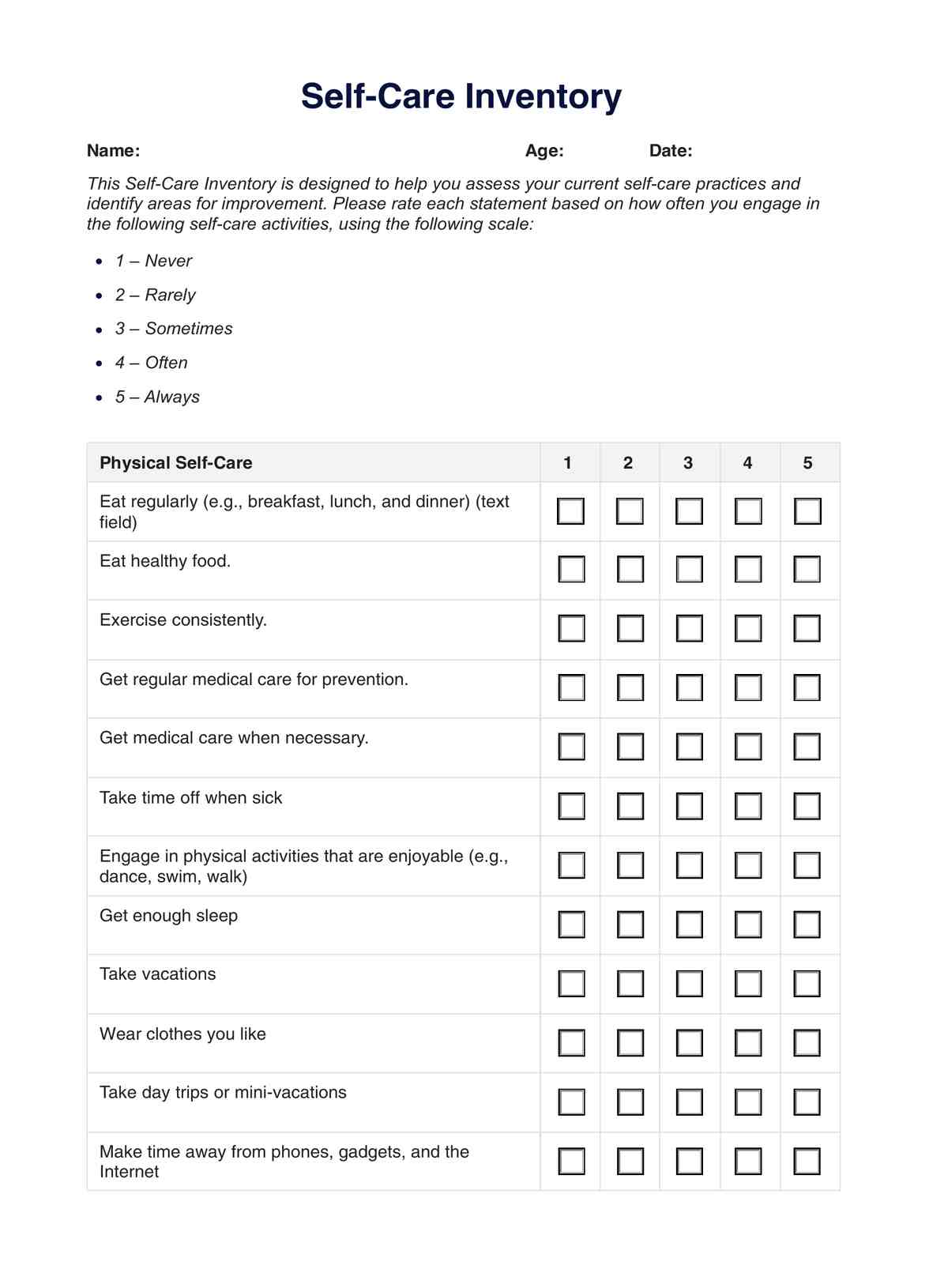


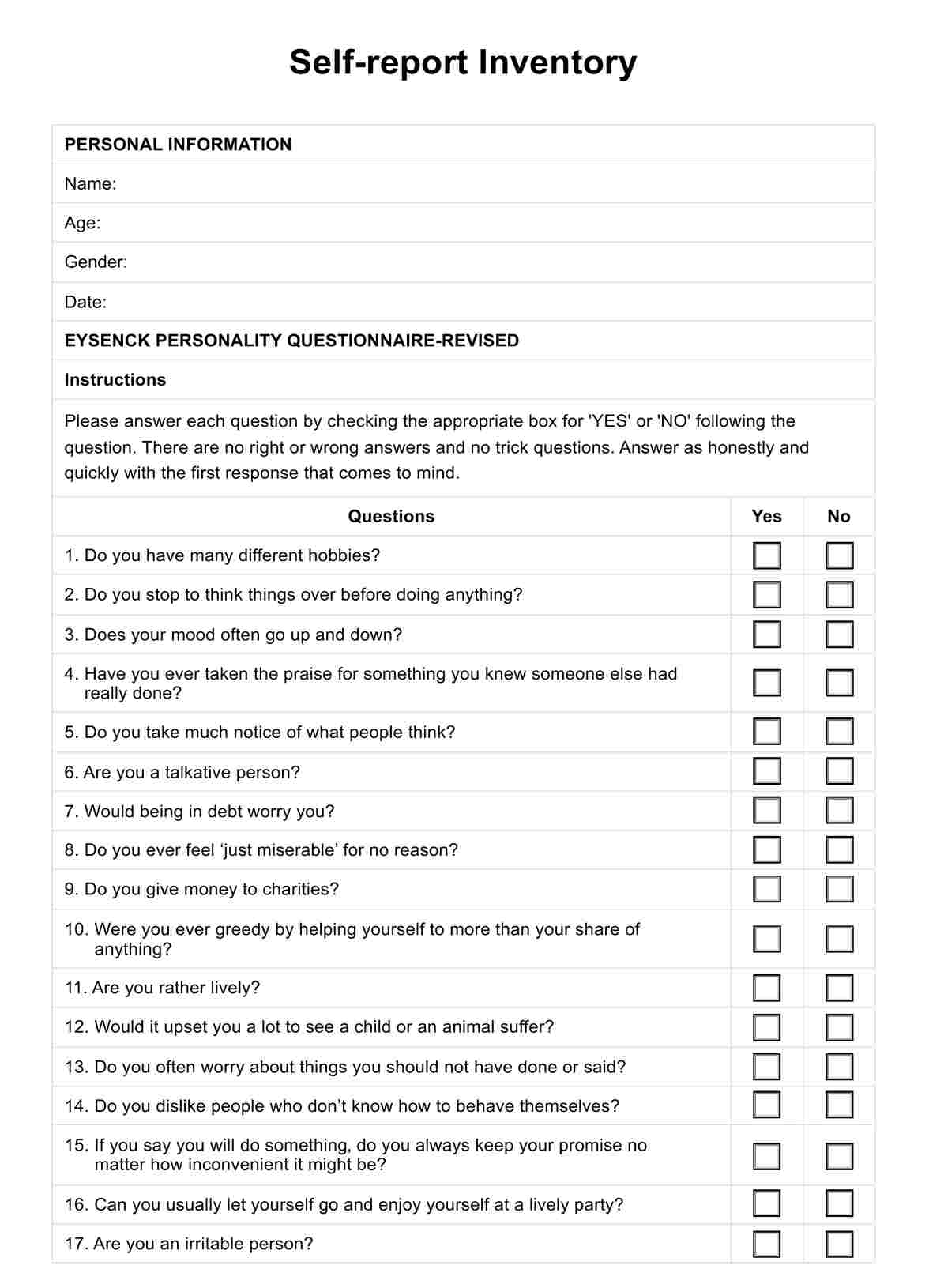
















-template.jpg)



















































































